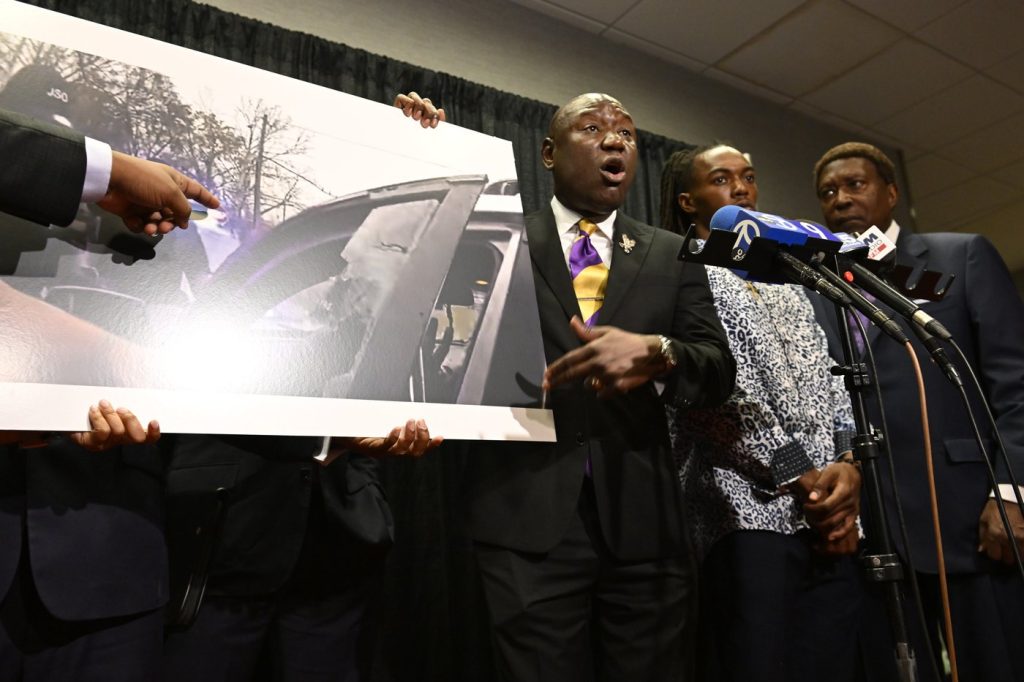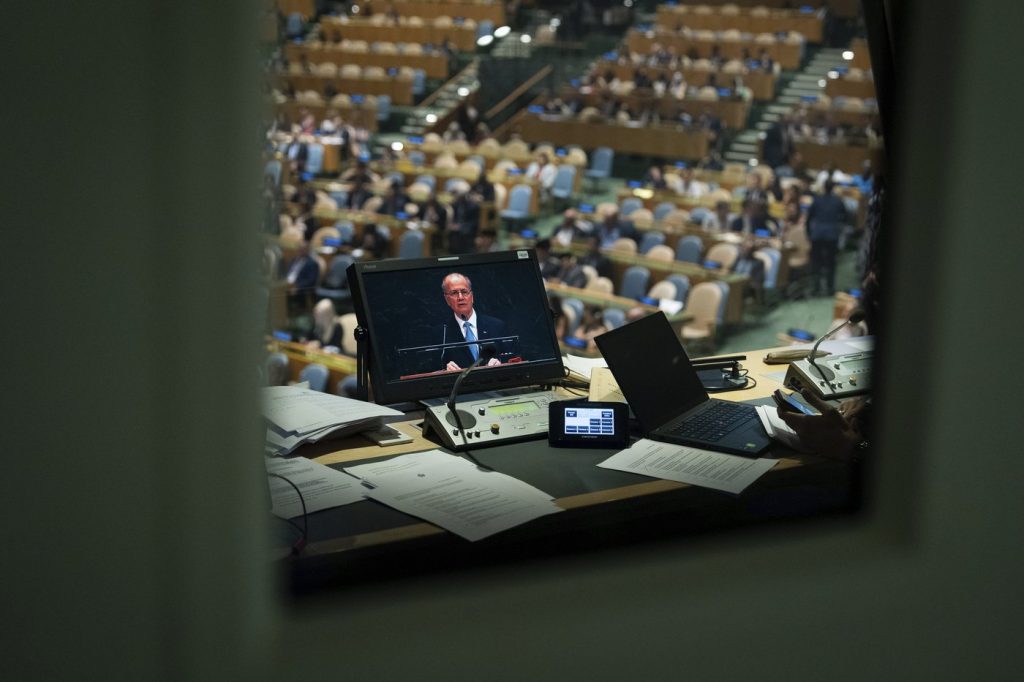CHICAGO (AP) — A recent incident involving a Florida police officer aiming his gun at a Black college student has sparked significant outrage. The encounter, which was recorded, involved 22-year-old William McNeil Jr. being forcefully removed from his vehicle and beaten, according to civil rights attorneys who held a news conference in Chicago to discuss the case.
Attorneys, including renowned civil rights lawyer Ben Crump, presented still images from the body camera footage. They highlighted discrepancies between the police's initial accounts and the recorded evidence, demanding the immediate termination of the involved officers and mentioning the potential for a federal lawsuit.
During the confrontation, McNeil was allegedly held at gunpoint as another officer shattered his car's windshield. Video evidence from inside McNeil’s vehicle shows glass shards striking his chin, after which he was struck in the face and repeatedly punched following his removal from the car. McNeil’s legal team claims that this brutal encounter left him traumatized, suffering a brain injury, and requiring stitches after a broken tooth pierced his lip.
McNeil expressed his feelings of safety being threatened during the encounter, stating, "That day I was telling the truth. I was being held at gunpoint, and I didn’t feel safe." His attorneys emphasized that there may be additional video footage that the Jacksonville Sheriff's Office has not released, further questioning the transparency of the investigation.
In defense of the officers, a spokesperson for the Jacksonville Sheriff's Office stated they could not comment due to ongoing litigation. Sheriff T.K. Waters addressed claims made by the lawyers, asserting that McNeil had been instructed multiple times to exit his vehicle. He argued that the released video lacks full context and does not accurately capture all circumstances of the situation, insisting that the police actions were justified.
McNeil was initially pulled over for allegedly not having his headlights on during adverse weather conditions, despite it being daytime, his attorneys noted. Crump suggested the sheriff's office uses such traffic stops as a pretext to target Black drivers, pointing out statistics showing that out of 78 citations for driving without headlights in three years, 63 were issued to Black motorists.
A key point of contention in the police report is the claim that McNeil reached for a knife located in his vehicle during the incident. However, Crump argues that video evidence shows McNeil keeping his hands visible and does not support the officers' narrative.
Last week, the sheriff released excerpts from body camera footage, but Crump accused authorities of selectively releasing material to mitigate the police's actions. He criticized the lack of transparency, asserting, "We know there are other videos that exist that we do not have." The footage released so far is limited, making it difficult to fully assess the officers' actions during the confrontation.
In the aftermath of his arrest, McNeil pleaded guilty to charges of resisting an officer without violence and driving with a suspended license. However, the State Attorney’s Office concluded that the officers had not breached any criminal laws, and an internal investigation by the sheriff's office remains ongoing.
McNeil is a biology major and former member of the marching band at Livingstone College, a historically Black institution. Although the incident occurred on February 19, it did not gain widespread attention until recently when footage from McNeil's car went viral.












